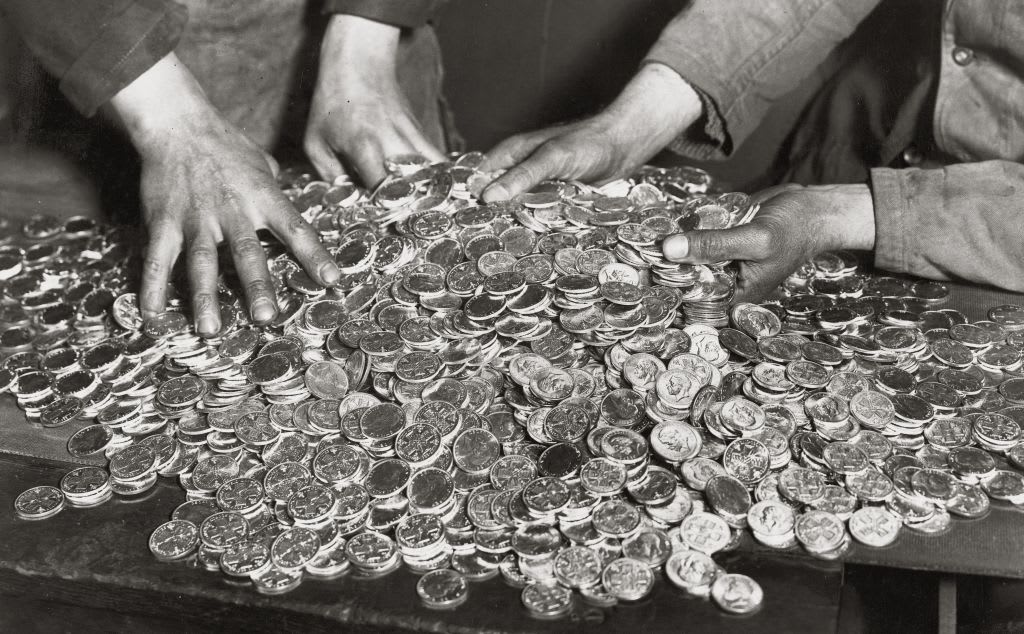Should you rollover your CD after it matures? Experts weigh in
With inflation still above the Federal Reserve's preferred 2% annual measurement, the central bank has kept rates steady recently. For savers, that has translated into continued attractive rates on accounts like certificates of deposit (CDs).
But while CDs can provide a guaranteed return for a fixed period, it's not always clear what you should do when a CD matures. Is it better to rollover a CD into a new one? Or are you better off taking the cash when the CD matures and depositing it into another type of CD or a different type of account altogether?
Unfortunately, there's no universal answer. It depends on both your personal situation and the broader economic situation at the time you reach CD maturity. That said, there are some clues that can help you determine when to rollover a CD and when to take the cash out. We spoke to some experts to see what they suggested.
See how much you could be earning with a top CD here now.
Should you rollover your CD after it matures?
There are some times when you should rollover your CD upon maturity and some other situations when you may not want to. Here's what to know.
When you should rollover your CD after it matures
A main reason why you might rollover a CD after it matures is if you can still get an attractive return from a CD. Note, however, that interest rates can change from the previous CD yield to the new one at the time of the rollover.
That said, you might decide to do a rollover to get a guaranteed interest rate for the duration of the new CD term. If you're worried about interest rates falling, for example, then you might prefer the certainty that comes from a CD, compared with an account that has variable interest rates, like a high-yield savings account.
"If interest rates are favorable and you don't need immediate access to your cash, rolling over your cash into another CD is a good option for your bottom line. As long as you stick within the federal insurance limits, CDs are a secure and guaranteed investment," says Ben McLaughlin, US president at Raisin, a global financial technology company.
You also might rollover a CD if doing so helps you reach a particular financial goal. Suppose you have a 1-year CD maturing, and you don't need access to the cash now but would instead like to save for a purchase next year, such as for a new car. In that case, rolling over the CD into another 1-year CD — especially if you can improve your CD rate — could be a good justification.
"Rollover a CD into a new one if the new CD offers a higher interest rate, aligns with your investment timeline, and if you don't need immediate access to the cash," says Cliff Ambrose, founder and wealth manager at Apex Wealth.
Learn more about your rollover options here now.
When you shouldn't rollover your CD after it matures
While a CD rollover can be helpful at times for locking in interest rates, it's not always the best use of your funds. For one, you might be able to get a better return from other types of accounts or investments.
"Before rolling over a CD, you'll want to compare the interest rate of the new CD to not only other CDs being offered, but also the current interest rates for Treasury bills and money market funds," says Matt Hylland, a financial planner at Arnold and Mote Wealth Management.
"Treasury bills offer an advantage over CDs because the interest earned is not taxable at the state level," which is particularly helpful for those in high-tax states, adds Hylland.
Or, you might decide that you want more liquidity, so renewing when your CD term ends wouldn't make sense. "Money market funds have an advantage of being more liquid. They can be sold at any time without any penalties, unlike CDs," says Hylland.
Similar to money market funds, you also might be more comfortable putting your money in a high-yield savings account.
"If accessibility is important to you, you may want to put your cash into a high-yield savings account, where it will continue to earn interest but can be withdrawn when you need it," says McLaughlin.
Consider your investment horizon and risk tolerance too. While CDs can provide a guaranteed return, you might no longer need that certainty. Instead, you might look for a "longer-term investment with the potential for higher returns," says Hylland. For example, investing in stocks and bonds might be a better fit if you're trying to save for a long-term goal like retirement.
The bottom line
Deciding when to rollover a CD vs. take the money depends on multiple factors. Not only do you want to consider the interest rate you could get by rolling over your funds into a new CD, but you also want to compare that to other types of savings accounts and investments.
Consider your liquidity needs and risk tolerance too. If you want more access to your money with limited risk, you might choose an option such as a high-yield savings account. If guaranteed returns are most important to you, then you might prefer to rollover your CD. Or, if you want to take on more risk in search of higher returns, you might invest in stocks or bonds.




